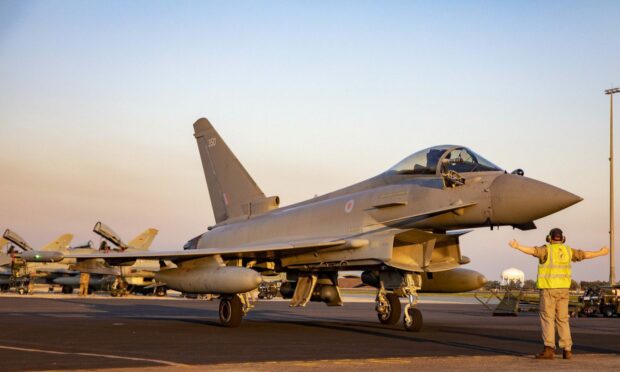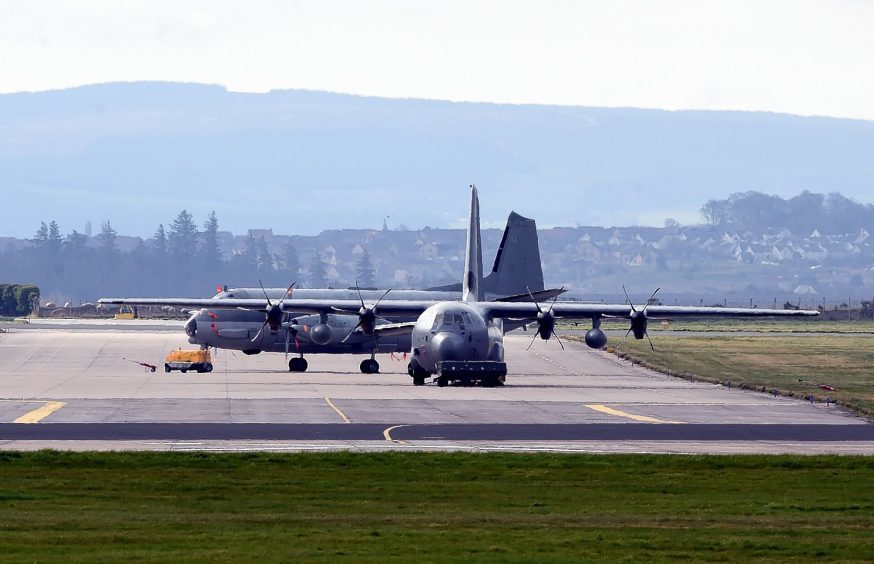The RAF has successfully used sustainable fuel on a Typhoon and C-130 Hercules aircraft for the first time in its mission to become net zero by 2040.
Sustainable aviation fuel (SAF) blended with the regular type was used to achieve blend air-to-air refuelling of the aircrafts.
A Voyager from the RAF delivered the fuel to the aircrafts, with the same type previously being used in successful initial trials in November 2022 when it flew on 100% SAF.
The leftover fuel from the Voyager trial was mixed with regular fuel at around 46-48%, with the the RAF working with Air BP to re-certify it and achieve the required standards needed for a safe and effective mission.
SAF is made from waste based sustainable feedstocks, such as used cooking oil, and reduces lifecycle carbon emissions on average by up to 80% compared to conventional jet fuel.
RAF Lossiemouth has been making progress to reach the air force’s goal of being net zero by 2040, with new electric generators being announced in November that should cut harmful emissions by more than 90%.
Along with reducing carbon emissions, the new ground power units will also improve working conditions at the Moray base, as they make around as much noise as a dishwasher or electric shower.
‘The trial proved there is no detriment to performance’
Squadron leader and RAF supply project manager Gaz Evans said: “We have learnt a great deal during this trial and now have confidence in our ability to use blends of sustainable aviation fuel now and in the future.
“The trial proved there is no detriment to performance as we strive towards reduced emissions targets.”
“This was a first for both Typhoon and the Hercules and we believe that we are the first air force to conduct an air-to-air refuel operation with a SAF bend at this level.”
More SAF flights are planned in early 2023 and on other RAF platforms.

